
Looking for the best blogging platform to start your new blog? We know it’s easy to get overwhelmed with all the different blogging platforms available on the market.
That’s why, in this article, we’ll show you 12 different blogging platforms for beginners and help you choose the best one for your blogging needs.
Here are the blogging platforms we’ll be comparing in this article.
- WordPress.org
- Constant Contact Website Builder
- WordPress.com
- Blogger
- Tumblr
- Medium
- Squarespace
- Ghost
- Weebly
- LiveJournal
- Typepad
- Wix
Choosing the Best Blogging Platform – What to Look For?
Not every blogging platform is created equal. Just because a platform is popular, doesn’t always mean that it’s the best choice for your unique needs.
Before you dive in and choose a blogging platform, there are a few factors you need to consider:
Examine Your Purpose:
Understand why you want to create a blog. Below are a few reasons why people start a blog:
- Demonstrate authority
- Make money blogging
- Write a journal
Once you understand your blogging purpose, double-check whether your preferred blogging platform helps you fulfill it.
Ease of use:
Ease of use is another important factor you’ll need to consider when choosing a blogging platform. If the interface is not convenient, you’ll be spending a lot of hours figuring out how to get things done.
Monetization:
WordPress.com, for example, doesn’t allow you to monetize your blog with Google AdSense or affiliate marketing. That means, if your goal is to make money blogging, then you’ll want to double-check that your blogging platform allows you to earn money the way you want.
1. WordPress.org

WordPress.org, also known as self-hosted WordPress, is the most popular blogging platform in existence.
While WordPress.org was originally built as a blogging platform, it’s now transformed into a fully-fledged content management system. With self-hosted WordPress, you can create any type of website, including eCommerce stores, forums, niche social networks, and so on.
To be able to start a blog with WordPress.org, you’ll have to own a domain name and web hosting, and then install WordPress on your web host.
Note: It’s easy to get confused WordPress.org with WordPress.com, so we recommend you to check out the differences between WordPress.org and WordPress.com
Pros:
- It gives you full control over your blog.
- You can easily customize the look of your blog with free or premium WordPress themes.
- You can also enhance the capabilities of your blog with WordPress plugins.
Cons:
- Managing your own blog comes with a bit of a learning curve.
- To start a blog, you’ll need a budget for a domain name and web hosting.
- Need to manage security and backup yourself.
Pricing:
WordPress is a free software, but you’ll have to purchase a domain name ($14.99 per year) and web hosting ($7.99 per month) to start a WordPress blog. Because the combined cost of both the domain and hosting can seem like quite a lot, we’ve worked out a deal with Bluehost for IsItWP users. You’ll get a free domain name, free SSL, and over 60% off on WordPress hosting. You only have to pay $2.65 per month.
Get started with a WordPress blog today!
2. Constant Contact Website Builder
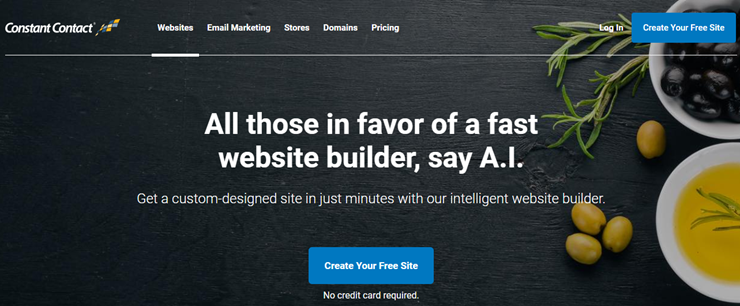
Constant Contact Website Builder is an AI powered builder that lets you create a site and a blog with a matter of clicks. All you have to do is to sync the website builder with your Facebook page. After syncing, the builder will help you choose a template and populate the content on your site from your Facebook page.
You can also create a brand new blog even without syncing with your Facebook page.
Constant Contact Website Builder is a good choice for users who want to build a blog with a premium website builder.
Pros:
- Setting up a blog has never been easier thanks to their AI powered site builder.
- Constant Contact Website Builder also comes with a free limited plan
- You get all essential features, including analytics tracking and eCommerce integration.
Cons:
- It’s not as feature rich as other blogging platforms, like WordPress
- No third-party extensions are allowed
- Although it has a free plan, you’ll need to upgrade to a premium plan if you want to connect a domain name with your site.
Who Is It For?
If you want to populate content on your website from your Facebook page, Constant Contact Builder is a good choice.
Pricing:
They offer a free limited plan, which is not a good choice for building an established site. To connect a domain name with your site, you’ll have to purchase their Starter plan, which costs $10 per month.
Get started with Constant Contact Website Builder today!
3. WordPress.com
If you want to start a free blog with WordPress, then you might want to choose WordPress.com.
WordPress.com is a free blog hosting platform managed by the same folks behind WordPress.org. With WordPress.com, you can start a free blog and upgrade your subscription with options like a custom domain name, additional storage, and more.
Pros:
- No setup required
- No budget required
- No need to manage security and backup yourself.
Cons:
- You can’t monetize your free blog with Google AdSense or affiliate marketing.
- To add a custom domain name that your visitors can easily remember, you’ll have to upgrade to a premium plan.
- Switching to another blogging platform can be expensive because you’ll have to pay for site redirection even after switching.
Pricing:
The free basic plan comes with a lot of limitations. To connect a custom domain name and remove WordPress.com ads, you can choose the Personal plan for $48 per year. If you want to monetize your site, then you’ll need to pay $96 per year for the Premium plan.
For more features and unlimited storage space, you can choose the Business plan for $300 per year.
Get started with WordPress.com today!
4. Blogger.com
Blogger.com is a free blogging platform by Google. Similar to WordPress.com, you can easily create a new blog on Blogger without having to spend a dime. Plus, you can monetize your free blog with AdSense, affiliate marketing, etc.
Pros:
- Easy setup and no budget required to start a blog
- Unlike WordPress.com, you can use a custom domain without having to pay a subscription fee to Blogger
- Monetize your blog the way you want.
Cons:
- Customization is limited
- You can’t add enhanced functionalities like an eCommerce store to your blog
- According to Blogger’s Terms of Service, they can suspend your blog at any time without prior notice.
Pricing:
Blogger.com is a 100% free blogging platform. If you’re already using it and looking for other options, then check out this article on moving a blog from blogger to WordPress.
Get started with Blogger today!
5. Tumblr
Tumblr is a blogging, microblogging, and social networking tool that lets you effortlessly share anything on the web, including photos, quotes, etc. It’s probably the most easy-to-use blogging platform in existence. Tumblr appears to have a younger user demographic in comparison with other social networks. Currently, it hosts over 417 million blogs.
Pros:
- The easiest free blogging platform in existence.
- It has an integrated social media component.
- Unlike other social media sites, Tumblr gives you the ability to heavily customize your own page.
Cons:
- Compared to other blogging platforms, Tumblr comes with a limited set of features.
- While you can choose from an extensive collection of Tumblr themes, you don’t have control over formatting, similar to other platforms like WordPress.com.
- Exporting your site to another platform can be quite difficult.
Pricing:
Tumblr is free to use. You can use a custom domain name for your Tumblr blog.
Get started with Tumblr today!
6. Medium
Medium is an online publishing platform launched in August 2012. It also lets you follow, read, and interact with the stories that matter most to you. Medium has a great built-in tool to import content from anywhere on the web and share it with your followers.
Pros:
- Medium is an easy-to-use publishing platform that doesn’t require any setup.
- With Medium, you can focus on what you’re really good at: writing. You can count on the platform for everything else, including the design.
- It comes with a powerful reporting tool that helps you understand how your readers engage with your content.
Cons:
- No monetization is allowed
- Limited control over your content
- Limited features are provided compared to other platforms
Pricing:
Medium is a free publishing platform. If you’re already using Medium and looking for an even better platform, then check out our guide on how to migrate from Medium to WordPress.
Get started with Medium today!
7. Squarespace
Squarespace is another website builder that lets you create a stunning website without any coding skills. Squarespace enables you to choose from dozens of site templates for your website. Each template comes with hundreds of customizable features. With an annual Squarespace subscription, you can even waive off the domain name registration fee.
Pros:
- It’s a nice platform to easily build a basic website.
- It also allows you to easily integrate an eCommerce storefront into your site.
- You can choose from an extensive collection of highly-customizable site templates.
- No transaction fee is charged for eCommerce transactions.
Cons:
- Unlike other site builders such as Wix.com, Squarespace doesn’t allow you to build a free website.
- Limited marketing tools are available.
- No third-party apps or extensions are allowed.
Pricing:
The Personal plan costs you $12 per month, which lets you build unlimited pages with unlimited bandwidth and storage. To add an eCommerce storefront to your Squarespace website, you can choose the Business plan for $18 per month.
Here are some of the best Squarespace alternatives you don’t want to miss to check out. Also, check out our step by step guide on switching from Squarespace to WordPress.
To waive off transaction fee on your online store, you can upgrade to the Basic Online Store plan that costs you $26 per month.
Get started with Squarespace today!
8. Ghost
Ghost is a minimalist blogging platform that makes it extremely easy to start a blog and publish content. It is designed to simplify blogging for both individual bloggers and online publications. Just like WordPress, Ghost is also available in both hosted and self-hosted platforms.
Ghost is best suited for bloggers and publications that need seamless authoring experience, so they can focus exclusively on the content being created.
If you’re looking to build an entry-level website with a limited budget, Ghost might not be the right solution.
Pros:
- Clean, clutter-free, and easy-to-use interface
- Built-in SEO and distribution tools
- No setup required for the hosted version
Cons:
- Self-hosted version works best on VPS servers and above
- Compared to WordPress, running cost will be high.
- Only limited themes and plugins are available in the marketplace
Pricing
Unlike WordPress, you won’t be able to install Ghost on a shared hosting environment. For the best experience, it’s advised to install Ghost on VPS hosting and above. A VPS hosting costs you around $10 to $20 per month.
If you need a hosted solution, then you can purchase a plan from $79 per month.
9. Weebly
Weebly lets you quickly build a website the way you want with its easy-to-use drag and drop builder. You can add a blog and even integrate an eCommerce storefront onto your Weebly website.
Pros:
- A free plan is available that lets you start a basic website on Weebly.com subdomain.
- All plans come with free SSL.
- You can easily start and grow your email list with Weebly Promote.
Cons:
- Exporting Weebly to another platform is difficult.
- Limited integration with third-party platforms.
- Limited built-in features to create a website.
If you’re are Weebly user and looking for a more flexible platform, then check out this guide on how to move your website from Weebly to WordPress.
Pricing
Weebly offers a free limited plan for beginners. To connect a custom domain name to your site, you’ll have to pay $4 per month. To remove Weebly brand ads on your site, you’ll have to upgrade your plan to Starter that costs $8 per month.
If you want to build a full-fledged eCommerce store and waive off the transaction fee, then choose the Business plan for $25 per month.
Get started with Weebly today!
10. LiveJournal
LiveJournal is a social network where you users can keep a blog, journal, and connect with like-minded people. If you need more robust features like polls and image uploads on your free LiveJournal blog, then you might consider upgrading to a paid plan.
Pros:
- It’s a combination of blogging and social media tools
- Besides blogging, users can send and receive private messages, join communities, befriend other users, etc.
- Available in many languages
Cons:
- LiveJournal ads will be shown on free blogs
- Unlike other platforms, you can’t find professional templates
- Not suited for businesses or professional blogging
Pricing:
LiveJournal has fallen out of favor, and for good reason. It only lets you create a basic blog with limited functionalities. You can create a free account on LiveJournal.
Get started with LiveJournal today!
11. Typepad
Typepad is a blogging service owned by Endurance International Group. Unlike other blogging platforms, you’ll have to subscribe to a premium plan in order to run a Typepad blog. With Typepad, you get full control over content monetization, unlimited storage, and personal support.
Pros:
- Thousands of templates are available to customize your blog’s design
- Easy integration with Google Analytics
- Built-in tools for search and social discovery
Cons:
- Since Typepad is a hosted platform, it offers limited customization.
- The entire platform was down for 6 days in April 2014 due to a DDoS attack, which has raised questions about its reliability.
- It’s a 100% blogging platform, meaning you won’t be able to add enhanced features like an eCommerce storefront with your Typepad blog.
Pricing:
You can start a blog on Typepad for $8.95 per month. To create unlimited blogs, you can subscribe to the Unlimited plan for $14.95 per month.
If you want to build a blog on a hosted blogging platform, then you might want to give Typepad a try. Compared to WordPress.org, it offers limited themes, customization and other features.
Get started with Typepad today!
12. Wix
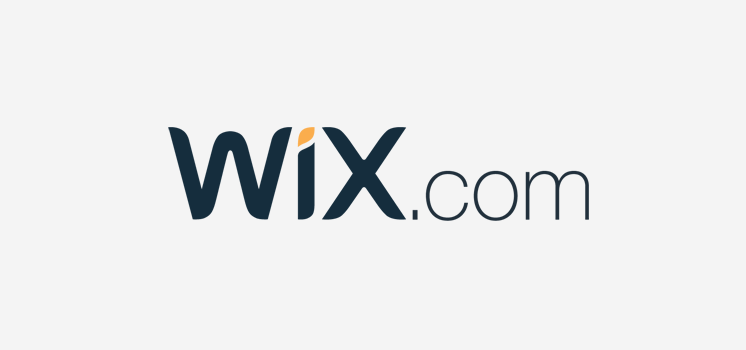
Wix is a drag and drop builder that allows you to create any type of website, including a blog, business website, eCommerce store, etc. You’re given hundreds of beautiful templates to build a Wix website with. You can integrate a blog into your website via the Blog app. With the free plan, you’ll be given 500 MB storage and 1 GB bandwidth. If you want to remove the Wix branding, add Google Analytics tracking, and use your own domain, then you’ll have to purchase a premium plan.
Pros:
- Create a website the way you want with the drag and drop builder and hundreds of free templates.
- You get a mobile-optimized site that looks great on all devices.
- With a premium plan, you can enhance the functionalities of your website such as eCommerce storefront integration.
Cons:
- Your website will display Wix-branded ads unless you upgrade to a paid version.
- Wix is best suited for beginner level users to build very basic websites. If you’re not an absolute beginner, you may feel frustrated by the limitations.
- Only a few third-party integrations are available.
Pricing:
Wix offers a limited free plan that allows you to use a Wix branded subdomain. You can connect a domain for $5 per month. To connect a domain and remove Wix brand ads, you’ll need to pay $11 per month.
You can add an eCommerce storefront to your site for $17 per month.
The Best Blogging Platform- Our Pick
If you’re serious about blogging, then we strongly recommend you to use self-hosted WordPress (WordPress.org). It comes with a complete set of tools to get your blog up and running. You can easily enhance its features by installing the right set of WordPress plugins on your blog.
Related: 11 Best QuickBooks Alternatives for Small Businesses
We hope this article helped you find the best blogging platform for beginners.
If you liked this article, you may also enjoy how to start a blog, step by step.
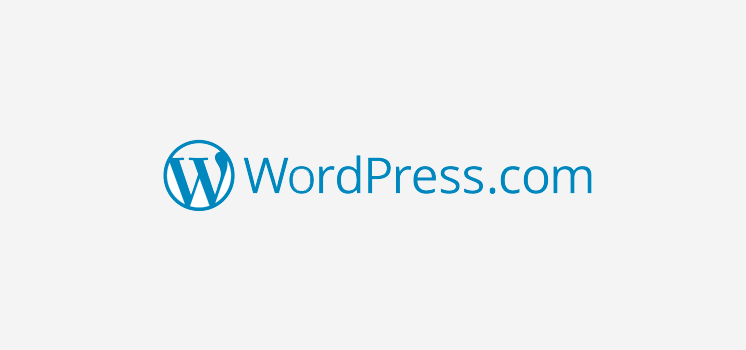
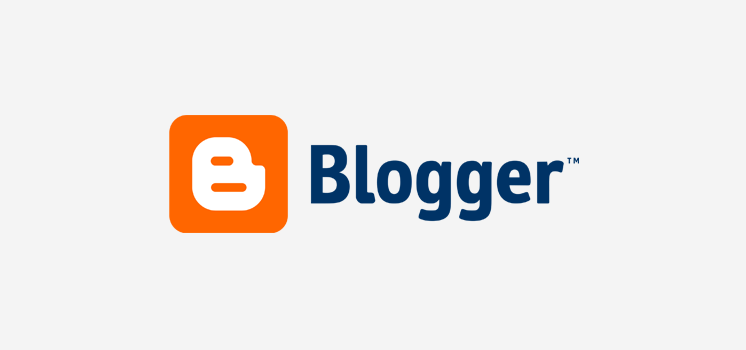
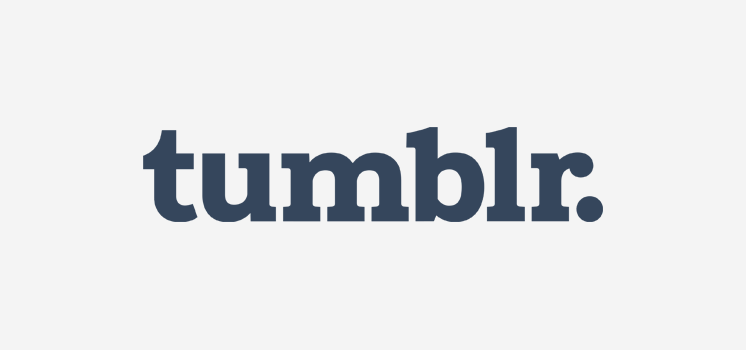

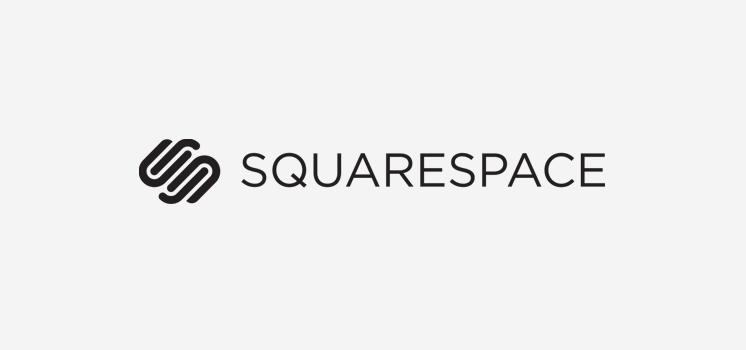
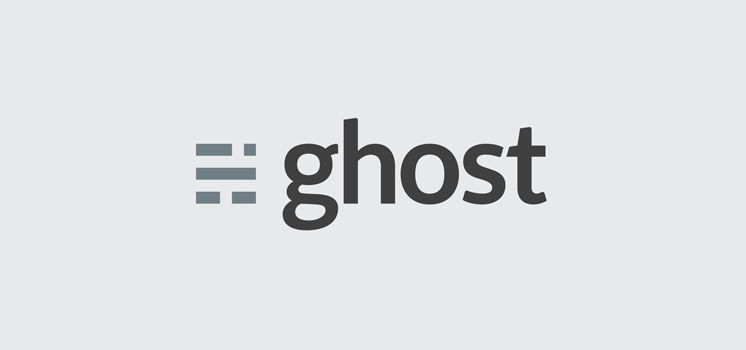
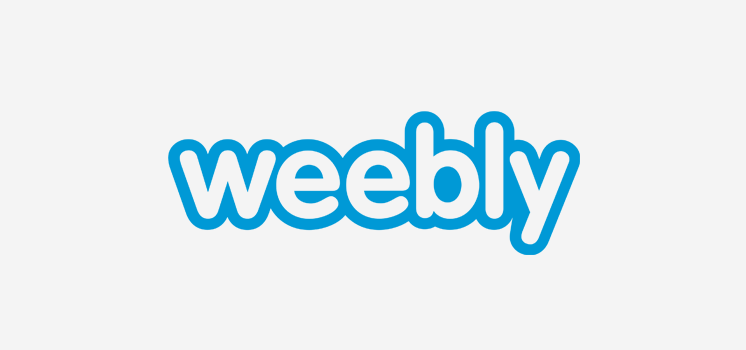

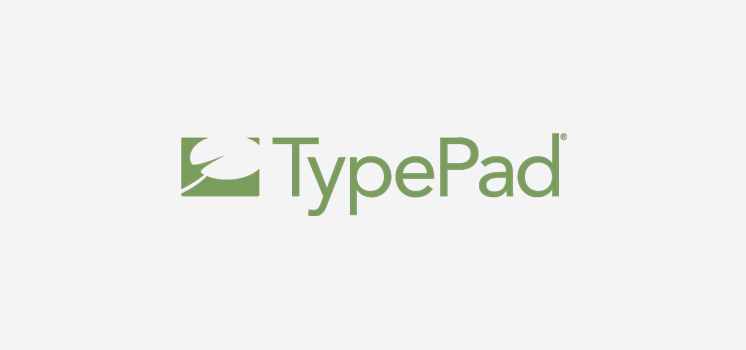

Wonderful information. Thanks a lot for sharing.
Glad you liked it, Harish
Thank you for sharing the details, it was very informative and helpful
Glad to be of help, Nilesh
Very good list. If you need simplicity you can also try monopages.com
Good list! Thanks for posting this useful info.